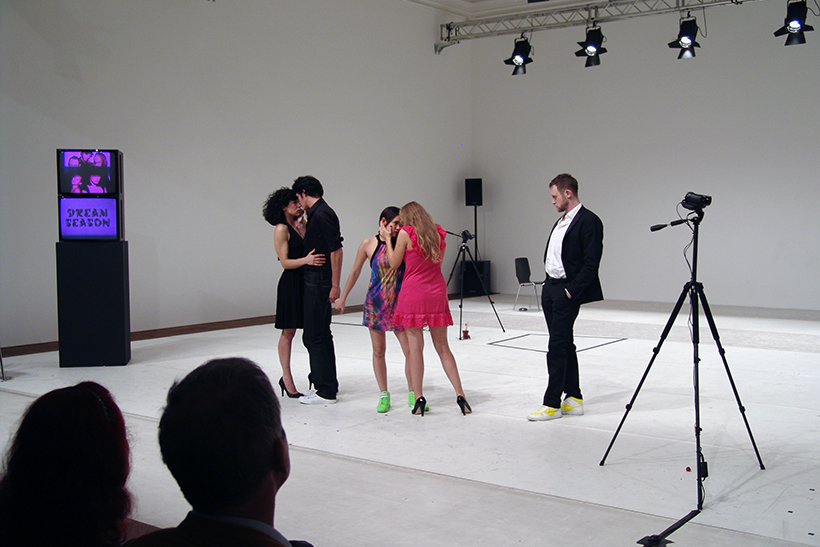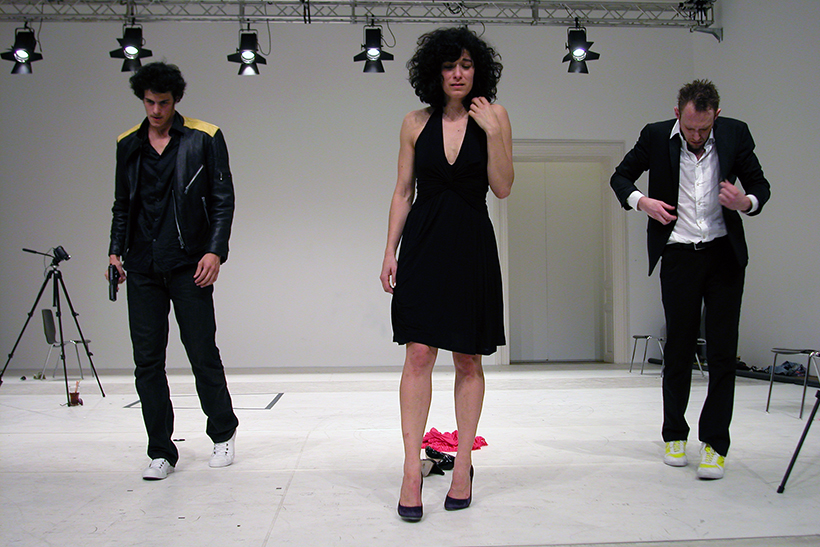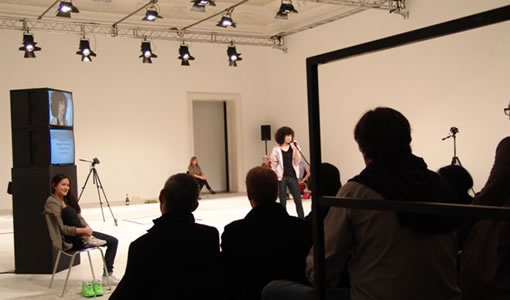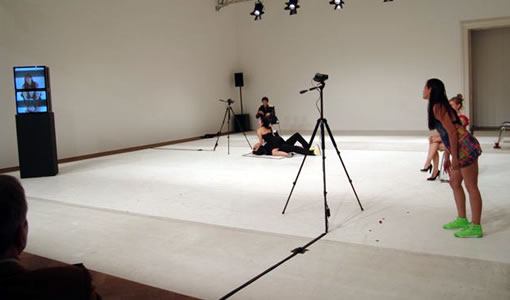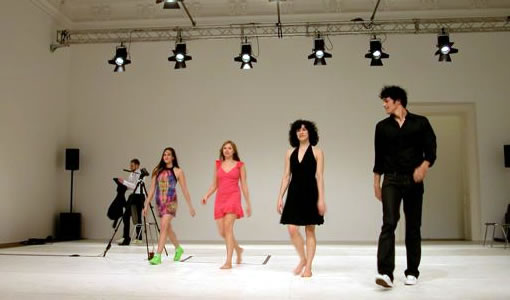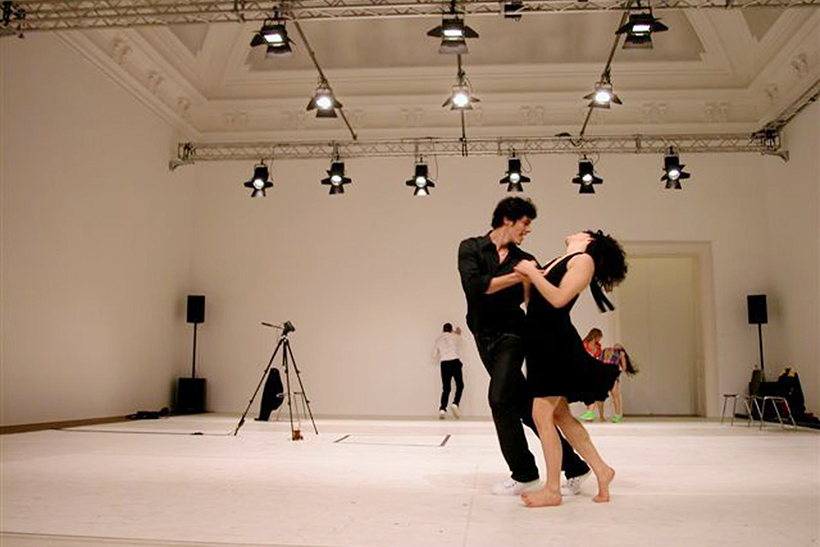Dream Season
If "Mainstream" is Alexandra Bachzetsis' most comprehensive engagement, to date, with the conventions of cinema as a visual narrative form – a conceptual concern that is of course also strongly present in older works such as "Murder Mysteries" – then "Dream Season" finally sees her turn her attention, both in analytical and deeply empathic a fashion, towards the bastard child of mainstream ('Hollywood') narration, the literary tradition of the feuilleton and crass commerce – the soap opera. [It is worth noting here, by the way, that the name "soap opera" derives from the genre's historical origins in the televisual marketplace: soap operas were badly told TV tales recorded to fill the gaps between ads in which the viewer was offered a wide array of soap products.] This hybrid mixture of high and low – the art of story-telling, so easily soiled, has a Homeric past after all – is a creative constant in Bachzetsis' work, and receives its most exhaustive treatment in "Dream Season". The piece's scenographic set-up has all the trappings of domesticity so commonly associated with the primal scene of soap television: a table, a couple of chairs, some schematic traces of the banal materiality of daily life – again, easily recognizable tropes from Bachzetsis' earlier pieces such as "Mainstream" and "Murder Mysteries", in which the mirage of intimacy easily morphs into the spectre of claustrophobia. The protagonists in "Dream Season" are two men and two women – a recipe for potential romantic disaster: the men and women are chosen to represent the widest possible gamut of archetypes, and figure as pawns on a chess board rich with endless possibilities, the very stuff of the soap opera's defining characteristic – that it can (and will) go on forever. As befits the true marketing nature of the soap opera, these quaint vignettes of quotidian strife and joy are interrupted at various and varying times by the obligatory commercial break, at which point the TV actors burst into a ludicrous sales pitch. These disruptive jolts not only serve to remind us of the pervasive presence of the language of commerce in everyday culture and life, in which every instance and every event is hijacked by the prospect of sale, but also of the brittleness of any distinction between truth and fiction (as evinced, among others, by that other populist TV phenomenon, the reality TV show). Who's to tell that the sales pitch is factual, and the ongoing stand-off between Man and Woman a mere figment of some screenwriter's sadist imagination? How is the claim of authenticity performed in a generic soap or detergent ad, and what is the difference between its acting and that of the "common people" so gracelessly depicted in much TV pap? The disorienting shifts in narrative and 'documentary' ('realist') perspective that keep "Dream Season" going tell us, theatre-goers, TV-watchers and supermarket shoppers, about the production of self in a society dominated by one spectacle alone: that of buying and selling. What, anyway, is Paris Hilton but a persona invented to sell us perfume named after a certain Paris Hilton?
CONCEPT AND CHOREOGRAPHY Alexandra Bachzetsis // DRAMATURGY Nicole Borgeat // PERFORMANCE Alexandra Bachzetsis, Gabriel Schenker / Carlos Garbin, Nicolas LLoyd, Liz Kinoshita, Martina Sofie Wildberger // COSTUMES IN COLLABORATION WITH Tina Bleuler // LIGHTS Tina Bleuler // SOUND Lies Vanborm in collaboration with Emilie Nana // GRAPHIC DESIGN Julia Born and Boyplaygirl // WITH THE SUPPORT OF Pro Helvetia arts Council of Switzerland, Präsidialdepartement der Stadt Zürich, Kanton Zürich, Ernst Göhner Stiftung, SIS Schweizerische Interpretenstiftung, Reso danse, Fond de Programmateur // COPRUDUCED BY Theaterhaus Gessnerallee, Zürich, Dampfzentrale, Bern, Theater Chur, Chur, Arsenic, Lausanne, ADC, Genève // ADMINISTRATION, PRODUCTION AND TOURMANAGEMENT «All exclusive», Nataly Sugnaux
